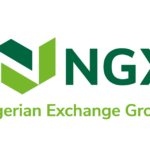Nigeria’s case is increasingly becoming a textbook example of failed economic policies. At least the World Bank has said so, with facts and figures. Those in charge of the nation’s economic affairs will need better or superior facts to counter that, but I do not know how many Nigerians will support any argument to that effect.
This economy deserves better attention than it has received up to now. From the monetary to the fiscal authorities, there is a call for new insights into the widening challenges. And that attention must be driven by greater ideas that can halt the drift and an end to the battering of people’s welfare. People are hungry; people are jobless, and everything has risen in price beyond the reach of ordinary people. There is an urgent need for retooling the management of this economy before collapses.
- NIGERIA DAILY: Why Dariye Is Still Seen As The GodFather Of Politics In His State
- Former NFF scribe, Amadu presents 22-point agenda to rescue Nigerian football
Who will attest to the sterling management of this economy in recent months or years? Is it those who are on a minimum wage of N30,000 per month? In 2019, that amount was equivalent to $82 in nominal terms. Today in 2022, its worth has come down to N22,000 in real terms and $37 in nominal terms, after adjustments for inflation and exchange rate depreciation, the World Bank said in its latest edition of Nigeria Development Update, published in June.
Given that these calculations were based on lower inflation and exchange rates, the reality is that the average household in Nigeria right now is much worse off. Inflation spiked to 19.64 per cent in July, up from 17.71 per cent in June; the exchange rate crossed the N700/$ mark before receding. In fact, Nigerians have not had is so harsh in recent times.
The government’s failure to tame inflation has left millions of households under extreme pressure. Putting this differently, the failure of economic policy has stoked inflation so much that it has now eaten deep into people’s welfare, dragging millions into poverty. Six million such people were previously predicted by the Bank to slip into abject poverty by the end of this year. Now, with additional inflationary pressure from the Russia-Ukraine war, another one million will join them. This gives a total of seven million new entrants that will join the league of the extreme poor this year via the furry of the unseen force called inflation, what economists call “inflation shock”.
With this, the number of Nigeria’s extremely poor will rise to 89.9 million. Now, juxtapose this figure with the government’s announcement that it would pull 100 million Nigerians out of poverty over a 10-year period. On average, that would see about 10 million Nigerians pulled out of poverty yearly. In the last seven years, there should have been a significant reduction in the number of the poor by now, if this has been the case. So, if we still have this number of people in poverty this year, it means that either the plan has not worked or that more people have actually fallen into the poverty bracket, which the Bank’s figure seems to suggest. Whichever, the summary is that the government’s plans or policies have failed to reverse the drift into poverty.
Like most economic indicators, the fact about inflation is that focusing on it is a distraction. It’s like a headache, which is felt in the head while the causal factors are located elsewhere in the body. In our present case, there are identifiable factors supporting it. A disaggregation of our inflationary dynamics, according to the World Bank, shows that the multiple exchange rates, higher import prices of intermediate goods caused by trade restrictions component through high import prices of both finished and intermediate goods, have all played roles in this price surge. Of course, there are other local factors, including the worsening level of insecurity in the land. The Bank estimates, for instance, that import bans led to a 38 per cent rise in the prices of goods concerned, just as trade restrictions led to a 14 per cent increase in the prices of the inputs affected.
So, it is not only imported food items, including wheat, that have risen in price. On the contrary, locally produced staple such as rice, yam, and bread have all risen in price, even faster than the average inflation rate. Yam is grown locally, but in April 2022, the price of an average tuber of yam rose by 42.7 per cent to N361, from N253 a year before; the price of a 500g loaf of bread rose by 35.4 per cent over the same period, the Bank said, citing figures from the National Bureau of Statistics.
Yet, the overarching factor remains a weak policy environment underlined by conflicting actions that produce unintended consequences. When unintended consequences become the dominant or most prominent outcomes of a set of policy actions, then there is an urgent need for a review and reappraisal of the entire process.
This should have been done long ago, but those whose responsibility it is to do so were busy, encumbered with the pursuit of political kingdoms while the economy drifted. The consequence is the general directionless state of this economy today. Economic policies are not magic wands that you flash and expect an immediate response. Applied at the right time and in the right dose, they produce the right effects at the appropriate time.
The next six months to one year will be critical to the survival of the Nigerian economy. As the political transition takes the centre stage in our national discourse, there is a chance that the economy will recede further to the background, but that will be a dangerous relapse. Three key policy areas should dominate activities within the period, says the World Bank. These are reducing inflation, addressing fiscal pressures, and catalysing private investment to boost job creation.
Addressing the first among the three points will involve tackling the constraints facing domestic production, from agriculture, which is threatened by insecurity, to the manufacturing sector which has been emasculated by high production costs. The business environment has become volatile and harsh, despite the talk about the ease of doing business.
Tackling these challenges will pave the way for the private sector to step in and invest in businesses that will create jobs. Without new jobs being created, nobody should expect an end to the escalating tension in the country. As for the fiscal pressures, the government’s agencies have to show dedication to their jobs. Part of that problem today is the rising oil theft, which many believe can be solved if the government shows the political will to do so. It’s all a matter of letting new ideas take us beyond where we are now.

 Join Daily Trust WhatsApp Community For Quick Access To News and Happenings Around You.
Join Daily Trust WhatsApp Community For Quick Access To News and Happenings Around You.


